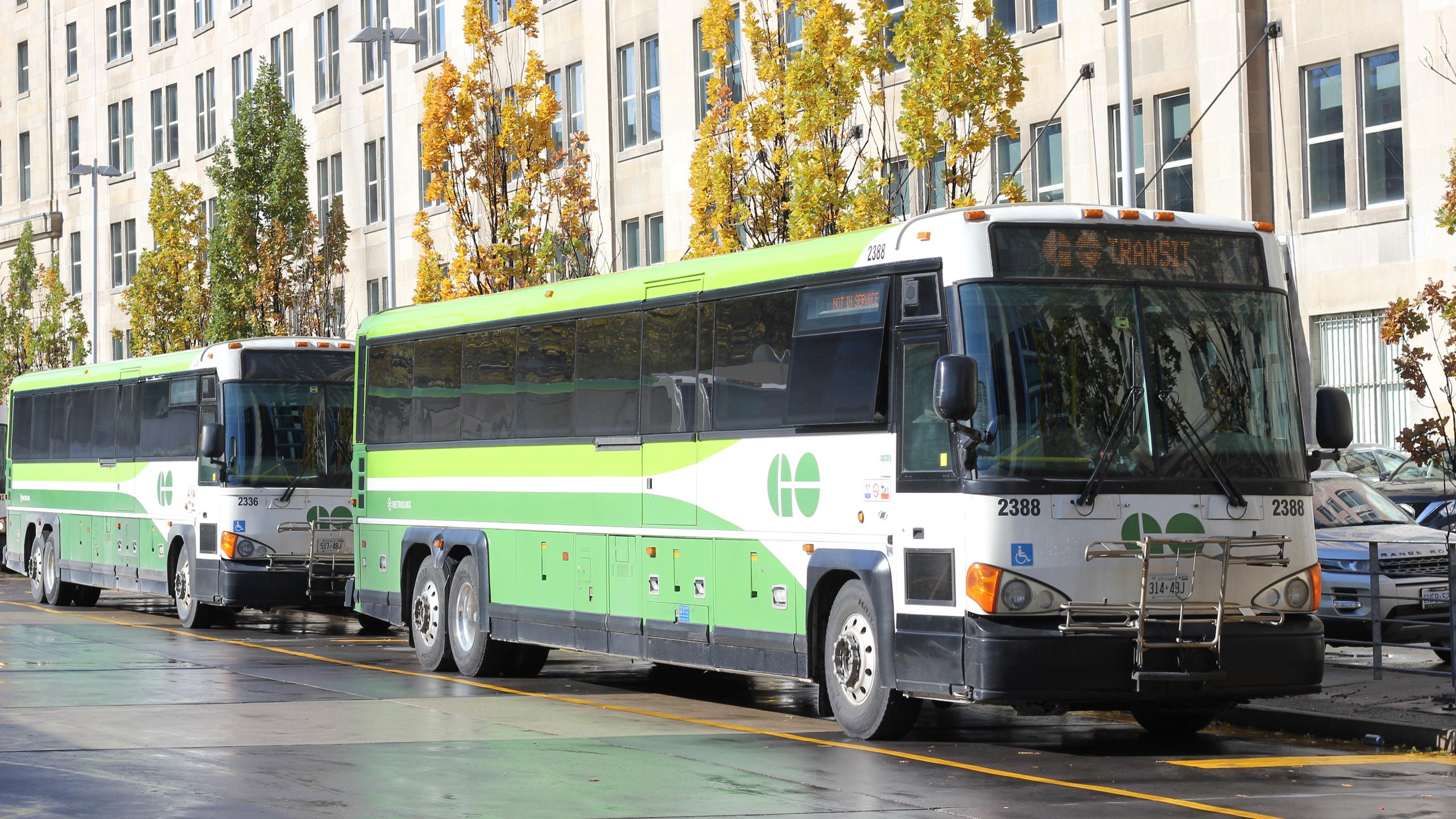By Alanna Rizza and Maggie Macintosh
Metrolinx has no plans to create a discounted GO Transit pass for Ryerson University students, The Eye has learned.
In their RU-Pass campaign, the Ryerson Students’ Union (RSU) advertised the universal TTC pass as the first step in making transit more affordable for students. The RSU promised they would work to expand the RU-Pass if the referendum passed.
“Metrolinx has said that they’ll work towards expanding the RU-Pass to the GO network if the TTC referendum is successful,” the RU-Pass website states.
But that’s not the case, according to Metrolinx.
“GO passes for students do not exist nor are there any plans to introduce one at this time,” said Fannie Sunshine, a media relations officer at Metrolinx, in a statement. “Any claims associated with such a pass are false.”
The RU-Pass will be implemented in September 2019, giving full-time students access to unlimited rides on TTC subways, streetcars and buses. The pass will cost full-time Ryerson students $564 per year, a sum that will be added to student fees and administered through Presto cards.
Sunshine said university students, including students from Ryerson, met with Metrolinx staff to propose a universal transit pass program last year. “We explained that GO pass products are not feasible at this time,” she said.
Instead, full-time students can set their Presto cards to a post-secondary setting to receive discounted rates on certain transit services—including the TTC and GO Transit, Sunshine said.
Shanee Watson, a first-year social work student at Ryerson, commutes to campus from Ajax on GO Transit and the TTC. Her commute takes one hour and costs about five dollars one way—she gets a $1.50 discount on the TTC when she transfers on with her Presto card.
The RSU shouldn’t have put out false advertisements about GO Transit being incorporated into the RU-Pass, said Watson. “If people were trying to do their research and they came across this, that could be the deciding factor if they wanted to vote ‘Yes’ or if they wanted to vote ‘No,’” she said.
GO Transit commuter Daniel Natykan agreed that the referendum advertising was misleading. “I think there was a lot of misinformation,” said Natykan, a second-year electrical engineering student who commutes from Vaughan. “It wasn’t a fair vote.”
Natykan said he’s opposed to the RU-Pass in any form. He said no one should have to pay extra fees in order to subsidize someone else’s transit costs—especially if you walk or bike to school or don’t take transit every day.
When asked for comment, RSU president Ram Ganesh said he hopes the RU-Pass will eventually include GO Transit, but the union’s immediate priority is to “iron out all the kinks” with the TTC.
“A GO pass is on the horizon, but not in the immediate future,” said Ganesh. “We’re going to have to negotiate with GO.”
He said the RSU wants to survey students to determine what GO Transit routes they take the most and then work out if the RU-Pass can be expanded to cover them.
“There’s still a lot of work left to do with the pass. We want to figure out what’s going on with the opt-out, we want to talk to the TTC about potentially adding on more criteria for students to be able to opt out. There are a lot of things we need to figure out with them,” said Ganesh.
He said there are no clear-cut rules surrounding who exactly is eligible to opt out of the pass, including students with disabilities.
The RSU is not in charge of opt-outs. Opt-outs will be assessed on a case-by-case basis by the Office of the Registrar at Ryerson.
Ganesh said that since the majority of voters were in favour of the pass, the RSU has “more leverage to push for more student operations.”
“We want students who use GO Transit to be able to opt out,” he said. “But in order for us to set all of this up, we need to be able to talk more with the TTC and that’s our next step.”












Leave a Reply